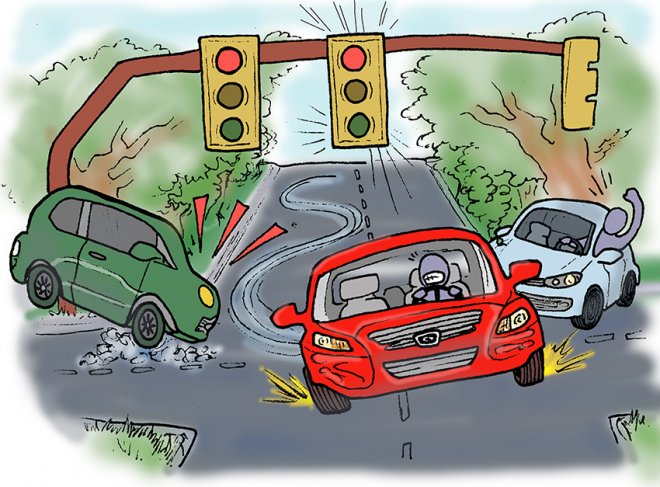Wireless Innovations Leave Used Connect Cars at Risk

In the year 2017, everybody has no doubt heard of the Internet of Things (IoT). The level of connection offered by a constantly expanding wireless network is changing phones, devices, and even cities to their core. Nowhere is this more apparent than in the automobiles that we drive–especially because it’s coming to pass that we’ll soon be legally unable to drive them anymore.
Wired ran an article last year titled Driving a Car Will Be Illegal by 2030 by Jay Samit, which drew upon Elon Musk’s quote that we may outlaw driving cars because it’s too dangerous, along with a smattering of statistic and figures that highlight human incompetence in driving. When you combine this with news that the commercial trucking industry is already headed in the self-driving direction, it’s not so absurd to think the rest of the world will follow.
The World is on its Way to Wireless

Google is currently testing balloons via Project Loon that will provide wireless internet to anywhere in the world…
Currently, at least 5 percent of new vehicles are being sold with embedded wireless technologies, and by 2018 “most new vehicles will come with integrated apps as standard,†according to Juniper Research analyst, Anthony Cox, quoted in an article with ComputerWorld. These apps range from geolocation and navigation, to remotely honking the horn and unlocking the car. Analysis Mason projects that by 2024 a full 89 percent of cars will include such embedded activity.
Autos aren’t the only things that are going to rely on a wireless network. With current wireless 4G networks strong enough to stream video (average global 4g LTE Speeds were 10.4 Mbps in 2013 and are faster today) and rumors that companies like T-Mobile are already laying the groundwork for a 5G network, we’ll definitely have to the infrastructure to support all mobile, all-connected everything–and we’re already beginning to.
The IoT itself is already growing extremely rapidly, and 87% of mainstream consumer still don’t understand it all. This lack of knowledge ensures that along with the benefits of connectivity, so too will arise problems.
From Grand Theft Auto to Possible Major Disasters
One of the more recently highlighted problems with connected cars in particular has to do with second-hand ownership. At February’s RSA Conference in San Francisco, IBM’s Charles Henderson related that his smartphone had retained access to a wireless-embedded vehicle for more than two years after he’d traded it back to the dealer.
“Despite deauthorizing all associated accounts, satellite radio and garage door openers, resetting the Bluetooth, as well as surrendering all the keys at the time of sale,†states an article on WeLiveSecurity, “Henderson discovered that his mobile app never forgot his old car.â€

The files are in the computer?
This means that he could track where the car was, change A/C settings and climate control, and even unlock the vehicle. While Henderson isn’t one of the bad guys, it’s easy to see how somebody looking for mischief might exploit such weak security. As the connected car becomes more common, and their features more advanced, their cybersecurity offerings will need to become much more sophisticated. For example, we’re already having problems with electronic auto insurance identity theft–how would our lives be affected if our personal information weren’t just located in the car, but were “in the car†(the same way the files were “in the computer†in Zoolander), and wirelessly accessible? To take it a step further, let’s talk about the cliche of the flying car (why don’t we have ‘em yet?).
A guy named Juraj Vaculik, CEO and co-founder of Slovakian company AeroMobil, announced at the 2015 SXSW in Austin, TX that flying cars are still in the works–and possibly even closer than we expect. Now, Vaculik is not the only player in the flying car game, not to mention any other “flying†industry, but one thing is certain. Whether it’s flying cars, UPS or Amazon drone delivery, all of these systems will be automated, reliant on wireless connections, and infinitely dangerous if they’re susceptible to hackers in the way that, say, cameras were during the Dyn DDoS attack of 2016.
The Good Amidst the Bad
All of this said, hope is not lost. While wireless entertainment is the near future, the far future promises far more. From a reduction of the current 100 hours a year that most commuters face to fewer legal and mortal complications arising from inebriated driving, self-driving cars stand to save up to 21,700 lives and $450 billion a year. Cities themselves will be changed by the IoT and the connected nature of virtually everything.
The simple fact is that our lives will be made better by a wave of IoT offerings that we will certainly never slow. Unfortunately, we may have to endure slight growing pains before those benefits are fully realized.
According to The Hill, there will be no “single omnipotent cyber security fix for the internet of things.†Government regulation and a healthy amount of trial and error will have to occur before everything is watertight–but once it is, we’ll be happy we weathered the storm.
image credit: dailytexanonline.com; paramount pictures
Wait! Before you go…
Choose how you want the latest innovation content delivered to you:
- Daily — RSS Feed — Email — Twitter — Facebook — Linkedin Today
- Weekly — Email Newsletter — Free Magazine — Linkedin Group
 Andrew Heikkila, a tech enthusiast and writer from Boise, Idaho, and a frequent contributor to Innovation Excellence. He also writes for Tech Crunch. You can follow him @AndyO_TheHammer
Andrew Heikkila, a tech enthusiast and writer from Boise, Idaho, and a frequent contributor to Innovation Excellence. He also writes for Tech Crunch. You can follow him @AndyO_TheHammer
NEVER MISS ANOTHER NEWSLETTER!
LATEST BLOGS
Four ways you can ensure employees take accountability for their work
One of the most important driving factors for any successful business is a high-performing team. Having people working for you…
Read MoreWhat is digital upskilling and why is it important?
Photo by Annie Spratt on Unsplash In a world of business that never stands…
Read More


